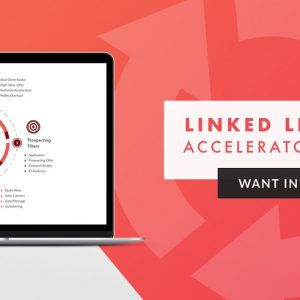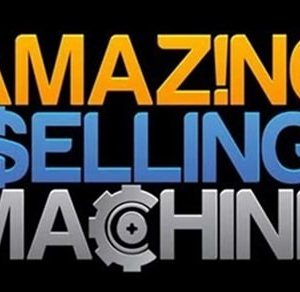[GroupBuy] Scaling School – Ravi Abuvala
$97.00 Original price was: $97.00.$29.00Current price is: $29.00.
Scaling School isn’t just another business course; it’s a comprehensive system promising to catapult your business from zero to millions. This deep dive explores the program’s core tenets, promising a transformational journey for serious entrepreneurs.
Table of Contents
The Proven Systems and Playbooks of Scaling School
This section delves into the “Proven Systems and Playbooks” touted by Ravi Abuvala and Scaling School. The core promise is access to the exact systems and processes that fueled his company’s remarkable growth. But what does this actually mean, and how effective are these pre-packaged solutions in real-world scenarios? Let’s unpack this critical element of the Scaling School offering.
Deconstructing the “Exact Systems”
The appeal of “exact systems” is undeniable. The promise of replicating a successful business model is alluring, especially for entrepreneurs overwhelmed by the complexities of scaling. But the reality is rarely so straightforward. While Scaling School claims to offer ready-made marketing, sales, and operational systems, the successful implementation hinges on context, adaptation, and nuanced understanding of one’s specific market.
The provided templates and playbooks offer a crucial foundation. They provide a structure, a starting point, a framework from which to build and adapt based upon a business’ specific nuances. Consider the sales funnel template – it’s a blueprint, not a magical incantation. Successfully replicating its success requires an understanding of the target audience, accurate market research, and insightful adjustments, given no two businesses inhabit identical conditions.
Scaling School’s success in this area likely depends on the quality and adaptability of these templates, ensuring they’re not rigid, inflexible blueprints but rather adaptable frameworks allowing flexibility based upon individual circumstances.
Examining The Marketing, Sales, and Operations Components
Let’s consider the different components within the program. The marketing aspect likely features proven strategies based on paid advertising, organic content, and community building. However, simple access to this information isn’t enough; successful execution requires understanding data analytics, campaign optimization, and effective A/B testing – skills that the course may or may not directly teach.
Sales systems require a deep understanding of the sales process – lead generation, qualification, closing, and customer relationship management. Learning the systems within Scaling School necessitates application and integration into existing infrastructure. The emphasis on these systematic approaches could aid in sales growth, but a singular dependence upon templates risks overlooking unique sales opportunities.
The operations component will almost certainly focus on efficiency and process optimization – crucial for scaling. A company’s internal infrastructure needs to scale proportionately to revenue and demands. Implementation requires analysis of bottlenecks, streamlined workflows, and leveraging technology to manage growth effectively.
The Importance of Adaptation and Personalization
The success of replicating any business system ultimately depends on personalization and adaptation. What worked for Ravi Abuvala may not work identically for others. Scaling School’s value proposition hinges on the flexibility of these systems, allowing entrepreneurs to customize them based on their specific market, target audience, and business model. The ability to iterate and improve upon the provided frameworks is where true value lies. The program’s success hinges on its ability to nurture this skill within its students.
Profitability and Efficiency: The Heart of Scaling School
The second core promise of Scaling School – achieving both profitability and efficiency – is particularly appealing to entrepreneurs seeking to minimize workload while maximizing income. However, striking this balance requires a deep understanding of business fundamentals and strategic decision-making. This section explores how Scaling School attempts to equip entrepreneurs to achieve this dual objective.
Beyond the Metrics: Understanding True Profitability
Profitability isn’t just about maximizing revenue; it’s about optimizing profit margins. Scaling School’s approach needs to go beyond providing tools for revenue generation and must address effective cost management, pricing strategies, and smart financial planning. Simple increase in revenue without similar cost reduction isn’t necessarily profitable.
The program will likely offer insights into crucial areas such as: lean manufacturing principles, cost accounting, pricing strategies, and inventory management, all critical factors contributing toward a business’ overall profitability. The success of this depends upon the in-depth teaching of these concepts.
Achieving Efficiency Without Sacrifice
Scaling efficiently is about optimizing processes, leveraging technology, and automating tasks to reduce workload. Scaling School likely emphasizes strategies involving automation tools, improved workflows, and delegation of tasks. But true operational efficiency also requires strong team management and effective delegation.
While systems and tools are vital, the human element remains critical. Scaling School’s success in fostering an efficient environment will depend on its ability to provide actionable strategies regarding team building, delegation, training, and nurturing effective communication. Overlook this, and even the most optimized system will not achieve efficiency.
The Long-Term Vision of Sustainable Growth
Profitability and efficiency aren’t short-term goals; they form the bedrock of sustainable long-term growth. Scaling School should emphasize the long-game, teaching resilience, adaptability, and strategies to maintain profit margins in turbulent economic environments. Scalability depends on building a strong foundation and establishing long-term strategies for financial stability and resilience.
Eliminating the “Business Whack-A-Mole” Effect
The “Business Whack-A-Mole” effect—constantly addressing emerging issues without a clear strategic plan—is a common entrepreneurial struggle. Scaling School claims to offer a structured approach to systematic growth, replacing this chaotic approach with a more deliberate focus and providing an alternative to unfocused approaches.
Developing a Strategic Roadmap for Growth
A structured approach necessitates establishing a business plan with clearly defined goals, targets, and strategies. Scaling School likely provides a framework for creating this roadmap, perhaps utilizing tools like SWOT analysis, and integrating it with the previously mentioned systems. Execution effectiveness is key here.
The effectiveness of the roadmap hinges upon an integration throughout the entire business, requiring effective change management and adoption from all staff members. A well-defined roadmap doesn’t automatically equal success; consistent execution and adaptation based on real-time data are critical for attaining objectives.
Prioritization: Focusing on the Most Impactful Actions
One of the most common pitfalls for growing businesses revolves around mis-prioritization. Scaling School likely stresses the importance of focusing on tasks that deliver maximum impact and implementing a process for analyzing ROI, discarding unproductive strategies and focusing on the most effective tactics.
The Theory of Constraints: A Guiding Principle
The Theory of Constraints (TOC) plays a central conceptual role in what Scaling School offers. Utilizing TOC involves systematically identifying the most significant bottleneck hindering growth and implementing targeted solutions to alleviate that constraint. A well-implemented system for addressing bottlenecks will allow efficient allocation of resources, and maximizing business efficiency. However, TOC implementation is anything but simple and requires more than a basic understanding of its underlying principles.
Scaling School’s reliance on the Theory of Constraints will be key to its success in eliminating “whack-a-mole” effects; failure to effectively teach and apply this approach will hinder the overall value proposition.
Tangible Tools, Templates, and Community Support
Scaling School’s offering goes beyond theoretical knowledge; it includes tangible tools and templates, plus community and expert support. This section examines these crucial components of the program’s value proposition.
The Value of Ready-to-Use Assets
The provision of assets like sales funnels, email scripts, and ad strategies offers significant value, particularly for entrepreneurs who lack the time or resources to develop these resources themselves. However, the quality and effectiveness of these assets are vital. Generic, poorly-designed templates might offer minimal value—potentially even hindering growth.
The success of this element depends, therefore, upon both the quality and the depth of the templates provided, and the support and customization guidance offered to adapt these templates to the specific needs – a lack of both would lessen the value significantly. Scaling School’s success hinges on this.
The Power of Community and Expert Support
Access to a community of entrepreneurs and expert support can significantly influence a graduate’s success. The opportunity to collaborate, share experiences, and receive mentorship can accelerate growth. However, the quality of the community and the expertise of the support team are critical. A poorly moderated community or unhelpful support staff can detract from the overall value.
The quality of the community interaction and the availability and responsiveness of support personnel are of paramount importance. Scaling School’s approach to community management and support infrastructure will dictate much of the value derived from the community aspect.
Leveraging Bonuses and Add-Ons
The inclusion of numerous bonuses, such as the Split Test Secrets subscription and marketing materials, enhances the overall value proposition. Effective use of these resources can help accelerate the learning process and accelerate growth. However, their practical utility must align with the program’s curriculum, or they may become superfluous.
The bonuses are a crucial element of the overall value calculation involved within the program. Their value is relative to the other elements of the program, and their relevance to the average student must be considered here.
Conclusion
Scaling School offers a comprehensive system for business growth, emphasizing proven systems, profitability, efficiency, and community support. However, the program’s ultimate effectiveness hinges upon not only the quality of its resources (tools, templates, and teaching materials) but critically, also on the adaptability and capacity of the individual entrepreneurs who engage with the course, integrating these systems and templates with personalization and thoughtful adaptation. Successful navigation of the course, and resultant entrepreneurial success requires ongoing learning and adaptation, rather than passive adoption of pre-packaged solutions. The program’s success depends on the student’s dedication and capacity to adapt.
Sales Page:_https://join.scalingschool.com/mifge-ss-1
Delivery time: 12 -24hrs after paid
Be the first to review “[GroupBuy] Scaling School – Ravi Abuvala” Cancel reply
Related products
Marketing












Reviews
There are no reviews yet.